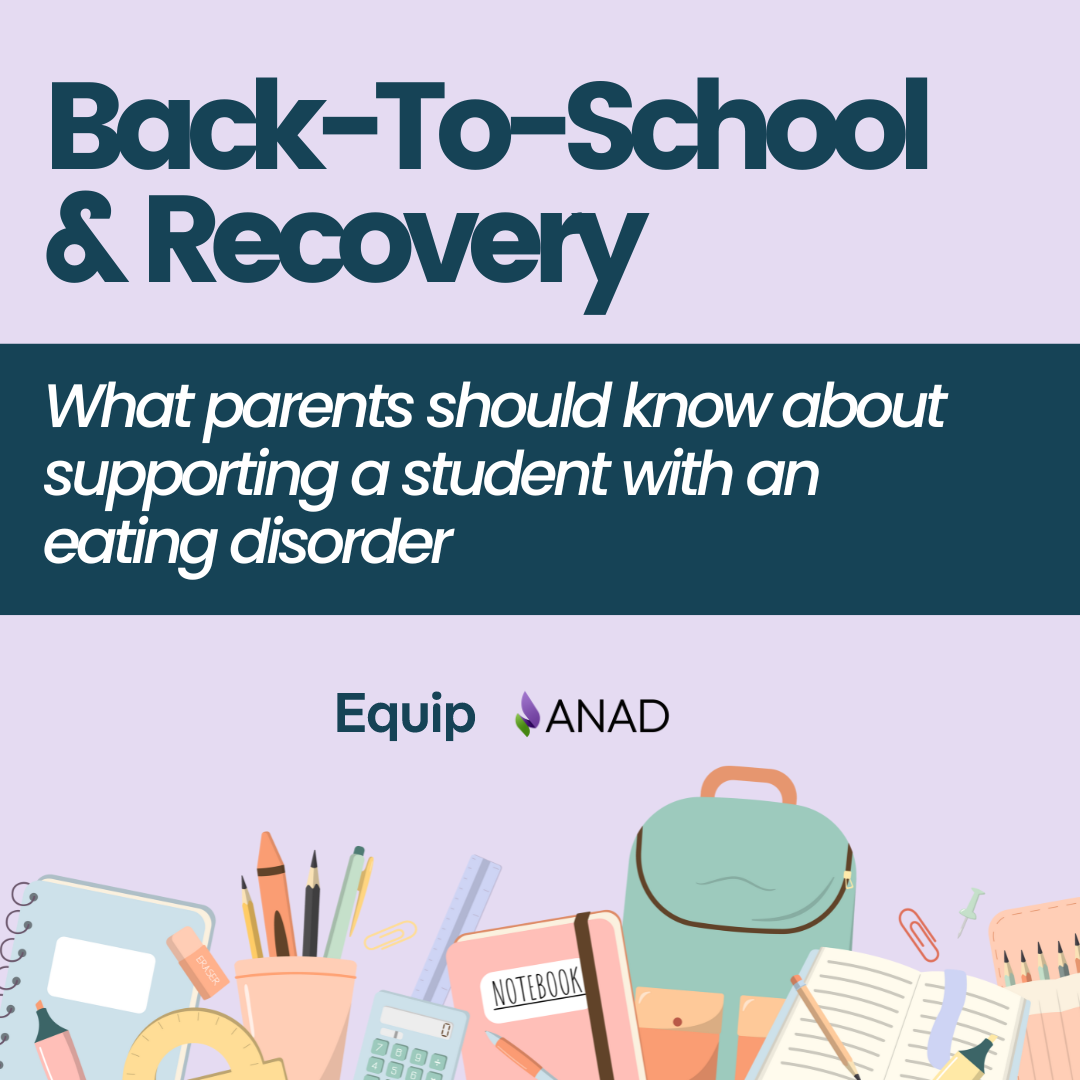Transitions are hard, full stop. This is true for most people, and in many different contexts: changing jobs, moving to a new city, big life events like marriage or having kids. When it feels like everything is in upheaval, people often grasp at parts of their life that they have control over—and for those vulnerable to eating disorders, that can mean disordered behaviors.
The back-to-school transition can be particularly challenging for those in recovery from or struggling with an eating disorder. A new school year presents some distinct challenges related to body image and eating, such as:
- Social dynamics. Kids may feel compelled to make an impression on their peers through their appearance, which may lead them to fixate on their body shape in comparison to others. This can trigger or fuel body image concerns.
- Eating with others. Lunchtime anxiety—whether about the food itself, social dynamics at play, self-consciousness, or something else—may prompt students to eat (or not eat) in a certain way if they feel it may help them fit in.
- Overall stress. Academics, social concerns, and the disruption of a big transition can all cause stress. This stress, in turn, can provoke appetite-suppressing tension, reducing a kid’s natural desire to eat.
- Clothing concerns. Because a big focus of back-to-school season is often clothes shopping, it’s natural for kids to become fixated on their body, especially if things don’t fit the way they expect or want them to.
Maddie Friedman, a therapist at the virtual eating disorder treatment provider Equip, says that in her experience, she’s seen a number of different factors promote eating disorder behaviors as kids return to school: “Changes in clothing size, social comparison, and new stressors can activate underlying mental health conditions or a predisposition to eating disorders, and lead to maladaptive coping,” she explains.
